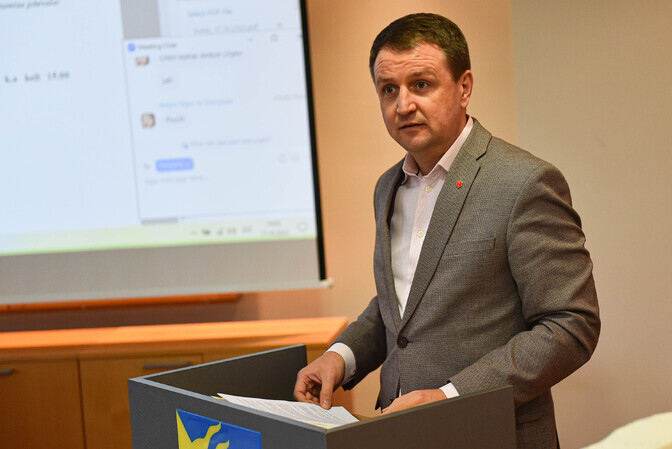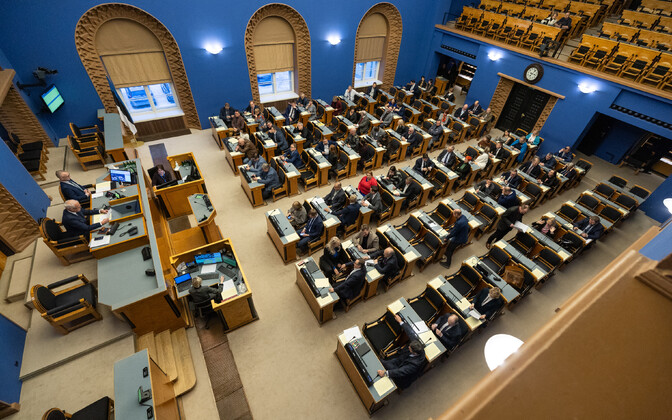Riigikogu support is insufficient at this point in time to be able to strip the voting rights of Russian and Belarusian citizens resident in Estonia, at least in time for the 2025 municipal elections, “Aktuaalne kaamera” reported.
While the Riigikogu’s Constitutional Committee discussed revoking voting rights for Russian and Belarusian citizens in Estonia, opposition from the Social Democrats (SDE) and Center Party makes it unlikely that the amendment will pass before the next municipal elections.
The committee met on Tuesday to explore the issue. Currently, all foreign nationals who are registered residents in Estonia, including Russians and Belarusians, are eligible to vote in local government elections, the next of which are scheduled for next year.
Most members of the committee expressed that a constitutional amendment is necessary to change this, but they also noted that it would be challenging to achieve this in time for the 2024 elections.
 Hendrik Johannes Terras. Source: Ken Mürk / ERR
Hendrik Johannes Terras. Source: Ken Mürk / ERR
Committee chair Hendrik Terras (Eesti 200) outlined three potential routes for amending the Constitution: through a referendum, approval by two separate Riigikogu sessions (the next of these starts in 2027), or an expedited process requiring 81 votes in the 101-seat Riigikogu.
Terras acknowledged that the 81 votes are unlikely to be secured given the opposition from the SDE and Center Party.
He said: “Right now, when we know that the Social Democratic Party and the Center Party do not support this amendment, while the math says they have 22 votes at the parliament, this means there won’t be enough votes to amend the law on an urgent basis if their current positions remain.”
The Reform Party and Eesti 200 back the revocation of voting rights for Russian and Belarusian citizens, but the Social Democrats remain undecided.
 Eduard Odinets (SDE). Source: Sergei Stepanov/ERR
Eduard Odinets (SDE). Source: Sergei Stepanov/ERR
Eduard Odinets, an SDE MP and member of the constitutional committee, stressed the need for more concrete discussions before he party can crystallize its stance.
“Before we can say whether we are for or against it, we would like to hold a discussion and debate what risks each approach from the Estonian state might entail,” Odinets said.
Isamaa MP Helir-Valdor Seeder suggested that if the Constitution cannot be amended in time for the upcoming elections, it should still be changed in time for the following municipal elections, in 2030.
 Helir-Valdor Seeder (Isamaa). Source: Ken Mürk/ERR
Helir-Valdor Seeder (Isamaa). Source: Ken Mürk/ERR
Seeder said: “We should go down the route of amending the Constitution as quickly as possible, especially since four out of the six parties represented at the Riigikogu have declared that they support changing the status quo. Then practical steps would need to be take.”
Meanwhile, 28 MPs submitted a bill on Monday to initiate the constitutional amendment process.
—
Follow ERR News on Facebook and Twitter and never miss an update!
Source:
‘Aktuaalne kaamera,’ reporter Anne Raiste.
